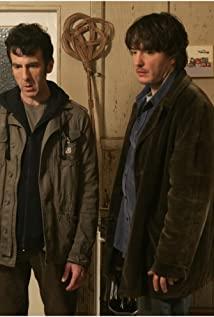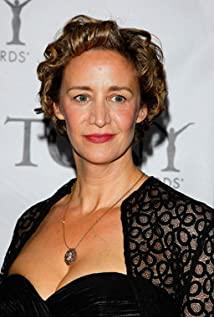From the middle of the eighteenth century, the productive forces and production relations in Great Britain underwent subversive and radical changes. The proportion of animal husbandry was adjusted, and the wool spinning handicraft industry in small workshops was transformed into large-scale mechanized production. Defoe began to celebrate the tenacity of human beings in his works. The self-confidence of the British was unprecedentedly inflated by the industrial revolution. The Industrial Revolution further changed the social relationship between men and women, from men farming and women weaving to men and began to defect to the era of big machine production. Appear as a worker. Capitalists oppress the working class. Increase the gap between rich and poor. Rural women began to engage in small household production, while urban women took up spinning jobs in factories for very little pay. From the perspective of existentialism of historical dialectical materialism. Relationships between men and women are always changing. But the status of women has not changed significantly. We've been talking about feminism, which refers to the rights and obligations women should have. Most women call for equality between men and women, but they only care about their rights and forget their obligations. Therefore, the cross-era of industry has always existed as patriarchy. Women are further reduced to victimhood. The claim of plagiarizing Beauvoir is the other.
The film "Androgyny" tells a story in the context of such a large society in the nineteenth century. And I don't think the movie is simply about lesbianism. It is more about feminist care and deformed patriarchal worship and negative feminism in the context of the big society. The film is based on the novel "The Strange Life of Albert Nobles" by Irish novelist Henry Moore. Starring and adapting the script by veteran stage actor Glenn Crowe.
The novel tells the story of Dublin, and the film is also shot in Dublin, which gathers almost all the imagination of the decadence and melancholy of the British Isles. Dubliner pronunciation. There is also Irish folk music full of accents. And James Joyce brought me the most fantastic imagination of literature and art. "The Dubliners," "Portrait of a Young Artist," and "Ulysses."
British culture, dwelling in red tape, has sharp edges and corners and beautiful accents. The story of the movie takes place in a hotel, and the details are also extremely decadent and beautiful. Prom, and delicate cutlery, cups and plates staggered. The actor's eyebrows and eyes are exquisite and distinct, and the costumes are exquisite. There is a tragic melancholy in the mood. Everything is painted in British symbols.
Aside from the big environmental background, the protagonist lives in the small-scale social circle of the Morrison Hotel. The tenants are already full of all kinds of creatures. The mercenary proprietress Mrs. Baker, the young and superficial Helen, some stereotyped resident tenants of the hotel, a A doctor and a dissolute Duke.
The protagonist Albert repeats his daily work in this small hotel over and over again, quietly hiding the secret that he is a woman, and has saved a lot of money, but lives in a void and meaningless. Until one day, the secret that she was a woman was discovered by the painter Hubert Page, which subversively changed Albert's life, because in the same way, Albert discovered that Hubert was actually a woman.
Although Albert and Hubert pretended to be identities because of difficulties, Hubert's choice was more rude and direct. Before she married a hooligan, she was abusive to her when she came home after drinking all day, so Hubert stole her husband's clothes. Disguised as a man to work as a painter, and found her lover, another woman, although the movie did not over-delineate Hubert's wife, but it is clear that Hubert's wife is still willing to live with Hubert after knowing that Hubert is a woman. There must be In addition, she may have suffered from a servile marriage, or suffered from domestic violence, or her family may be poor, but such an identity will most likely be a victim of her life. Therefore, the film deliberately adds a bit of deep and inclusive maternal brilliance to the close-up of several shots of Hubert's wife.
Albert is timid and sensitive by nature. At the beginning, he never clearly told Hubert why she changed her gender. Even when Hubert asked her what her real name was, she always said in a trance that her name was Albert, not so much timid. , it is better to say that she is more complicated than Hubert. Hubert's gender change is like a kind of resistance and ridicule to the patriarchal society, because she not only lives well but also has a family. The happy family atmosphere seems to be intended to reveal that it is not that a woman cannot support a family, but under the premise of covering up her true colors, or rather, under the premise that the general public equates her with a man, put aside the secular. Vision, women make as much effort as men or under more conditions than men, women are also able to live well. Gender happens to act as a mask here. But innocuous and irrelevant.
And when Albert visited Hubert, she finally had the courage to reveal her story, and this story had to start from the beginning. Albert was an outcast since childhood. She learned from her adoptive mother that her mother was not poor and belonged to the middle class. That is to say, her mother was absolutely capable of raising Albert, and then her mother abandoned her, so if Albert was not an illegitimate child, it was the product of her mother's unwed pregnancy. However, in that era, this was not tolerated by etiquette. Men could look for flowers and ask willows, and then they could not involve any sense of responsibility, and women were bound more than men, and such things would also be tolerated by society. The deformed social customs caused Albert She has never been accepted by society since she was born. Her birth means the beginning of tragedy. Maybe she knows her real name, but this name brings her too many bad memories. There is no name. Her mother had abandoned her since she was born, and there was no time to give her a decent name, since her birth was a mistake.
Albert had spent his entire life seeing his mother, and her mother probably thought it was a humiliating past. That's why Albert seems so cautious, the ultimate cause of her character is her inferiority complex. No one else has ever admitted her, nor has she ever admitted herself in her heart. Albert's biological mother would send money to Albert's adoptive mother when she was alive. Even so, she was reluctant to show her face in person, which to a certain extent caused great harm to Albert. With the lack of financial resources, Albert and his adoptive mother's life went from bad to worse. Finally, when he was sixteen, his adoptive mother also passed away, and various livelihood problems followed one after another. And Albert felt that a major incentive for cross-dressing was that she was raped by five people at the same time when she was alone. Although Albert only had a few sloppy words when he talked to Hubert, from the blinking eyes and trembling voice of Albert, we could tell that this was a major heart injury. At such a beautiful age, everything is It's not as beautiful as expected, and some are just humiliating and swallowing up as a woman. Never got any help. And also need to find a way to support themselves. Therefore, it is the safest and most feasible for women to disguise themselves as men.
Another difference between Albert and Hubert is that Albert doesn't know what he wants, Hubert wants a normal and quiet life, she has a clear purpose, because she knows what beauty is like, and Albert has never seen beauty, she The intention of a woman disguised as a man is only to escape the past and hide herself. However, although the woman disguised herself as a man and relived her life, although it was not beautiful, there was no conflict, and it also brought herself a reliable job and relative security, and it was peaceful.
Until Albert saw Hubert's life, he thought that life can be so beautiful, so Albert gradually had a vision for life, she thought that she could have her own tobacco shop with a beautiful girl, and live a peaceful life. life, so she began to plan her future life and rekindled her hope. She began to look forward to and imagine a better life in the future, and tried her best to make her imagination concrete. She locked her life partner in the hotel for the young waitress Helen. So everything has a new meaning for Albert, but due to her later formed character factors, she is not completely suitable for the so-called happy state of universal value. Albert wasn't as bold as Hubert. Rather, it needs to be protected. And while Helen is young and beautiful, she has all the negative elements of femininity: ignorance, timidity, lack of opinion, stupidity, slickness.
From the very beginning of the film, the footage reveals that Helen is a restless and frivolous girl. In the whole process of Albert's pursuit of Helen, she was instigated and deceived by the new handyman boyfriend Joe. She didn't really like someone as rigid and lifeless as Albert. Going out and dating Albert also used her more. . Helen has a yearning for a better life, but lacks the ability to measure a person. Indulge in the unrealistic fictitious American dream that Joe vouched for her. And stupid women often lack the ability to discern the truth once they fall in love.
During this period, there was a plague in Dublin, business at the Morrison Hotel went downhill, Albert accidentally fell ill, while Helen and Joe were still having fun, and Hubert's wife died of the plague. When Albert visited Hubert after his recovery, he offered to take Hubert and Helen to live together, but Hubert shook his head and said that his wife was irreplaceable. Judging from the two points of view, Hubert has long been integrated into the life he constructed. On the other hand, it shows that Albert did not really love Helen as a man, because love is exclusive, and the reason why she suggested that the three live together, Just wanting to get rid of the weight, longing to be accepted, and Helen ridiculously became a part of that. Hubert found the clothes left by his wife, and they both wore women's clothes and ran happily by the sea. Looking extremely happy. This shows that in their bones they hope that they will be accepted, recognized and cared for by society as women. In social life, they are frightened and pretend to be their own identity all the time.
The appearance of Joe means that whether the writer or the director has thrown us another question, are men really that great? Or is society too tolerant and tolerant of men. Joe is despicable and timid, and has a stubborn style. His face changed suddenly after learning that Helen was pregnant. Obviously, he just wanted to satisfy his desires and not bear the consequences. Here we are trying to discuss whether gender can be divided equally. Yes, both men and women are good and bad, and human nature cannot be generalized.
After Helen's frequent quarrels with Joe, Albert hit the nail on the head on the last date, exposing a major problem Helen had been blinding him all along, that Joe would not take her to America, and he didn't want the child at all, Even taking Helen to America would abandon Helen.
The plot continues to develop in a white-hot direction when Helen and Joe are quarreling next door to Albert. Every time Helen and Joe have to fight with Joe about the child, and Helen is exhausted. This time Albert walked out of his room and watched. In front of all this, he mustered the courage to tell Helen to leave Joe, and promised to take care of Helen and raise the children. At this point Joe's machismo erupted for no reason. In any case, a man has the right to use his overly complacent and unshamed patriarchal vanity.
So in the chaos, Albert's head hit the wall of the stairs and hastily ended his life.
The end of the story is full of black and bitter irony, the kind of deeply sad portrayal that pervaded the entire 19th century.
Joe had run away long before the baby was born, and it was absurd that Albert was only discovered to be a woman when he knew he was dead. The Morrison proprietress received a considerable windfall from Albert's death, while Helen gave birth to a child and worked unpaid at the Morrison Hotel. Because if you leave here, Mrs. Baker will report Helen to the church, so that Helen's children will be sent to the orphanage, and Helen will be scorned by the world on the streets.
And overlooking the panorama, this is still the indifferent but full of rumors of Dublin.
And above women and men, we are first and foremost as human beings. And I always thought the really great people were androgynous. Because it needs to gather all the advantages. The mind is quick and sensitive, and the heart is strong. The body moves in a huge harsh environment. Gender is nothing more than a symbol, ambiguous. And who brought us so many tragedies of social existence?
View more about Albert Nobbs reviews











